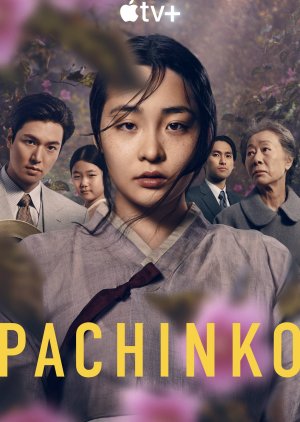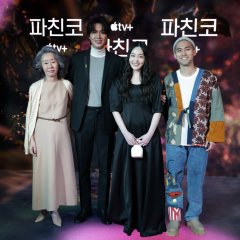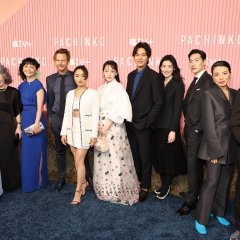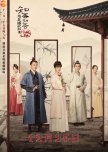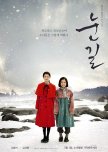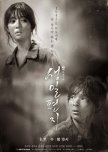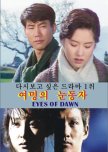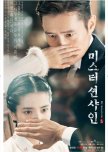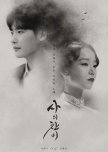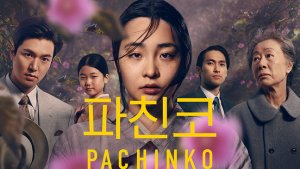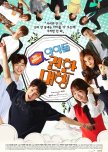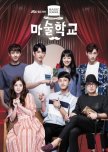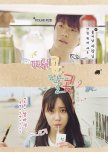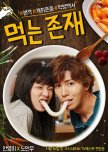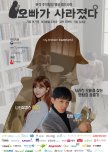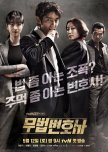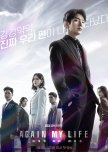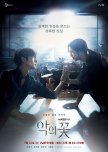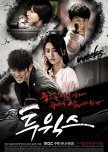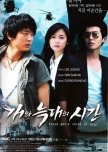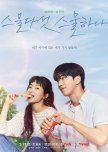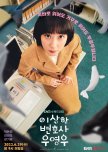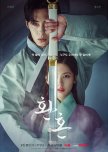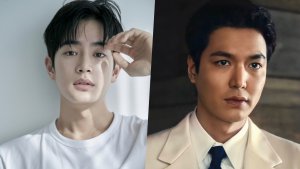 Kang Tae Joo to Reportedly Join Lee Min Ho's Upcoming K-drama "Pachinko Season 2”
Kang Tae Joo to Reportedly Join Lee Min Ho's Upcoming K-drama "Pachinko Season 2” This sweeping saga chronicles the hopes and dreams of a Korean immigrant family across four generations as they leave their homeland in an indomitable quest to survive and thrive. (Source: AppleTV) ~~ Adapted from the novel "Pachinko" by Min Jin Lee (이민진). Edit Translation
- English
- 中文(简体)
- Русский
- magyar / magyar nyelv
- Native Title: Pachinko
- Also Known As: 파친코 , Pachinko Season 1
- Screenwriter: Soo Hugh
- Genres: Historical, Romance, Drama, Melodrama
Where to Watch Pachinko
Subscription (sub)
Cast & Credits
- Kim Min HaKim Sun Ja / Baek Sun Ja [Teenage]Main Role
- Youn Yuh JungKim Sun Ja / Baek Sun JaMain Role
- Jin HaBaek SolomonMain Role
- Lee Min Ho Main Role
- YunaKim Sun Ja [Child]Support Role
- Park So HeeBaek Mo Se / Baek MozasuSupport Role
Reviews

"She'll thrive, and through her a family will endure."
In her 2007 novel “The Sweet Far Thing”, Libba Bray has says, “There is an ancient tribal proverb I once heard in India. It says that before we can see properly we must first shed our tears to clear the way.” Indeed, our past is what holds us back from things that we wish to accomplish, but what matters is how we learn, acknowledge and grow as better human beings from it. We are healed of a suffering only by experiencing it to the entire. There is no beauty in sadness, no honour in suffering, no growth in fear and no relief in hate; it’s just a waste of perfectly good happiness. “Pachinko” depicts all that through the saga of a family over generations."Pachinko (パチンコ)" is a Japanese gambling device resembling a pinball machine but with automatic payoff as in a gambling slot machine (merriam-webster). Pachinko parlors are widespread in Japan, and, mostly owned by Korean immigrants, and usually also feature a number of slot machines so these premises resemble and operate similarly to western casinos. Modern pachinko machines have both mechanical & digital components. As stated by the writer, Pachinko, in the show, is depicted as a metaphor to life, when it's very unfair to go ahead, but you still continue to play, because you can't turn back or give up either. Pachinko is a game of chance and survival, both figuratively and literally.
Created by Soo Hugh and co-directed by Justin Chon & Kogonada, "Pachinko (2022) is an American show from Apple TV+, adapted from the original book of the same title authored by prominent Korean-American writer Lee Min Jin, released in 2017. Co-produced by 3 companies: Media Res, A Han.Bok Dream and Blue Marble Pictures, it's a 4 year long project, that started with Apple Inc. acquiring the bid for the series in 2018. The production took 7 months for casting and all of the cast were in fact auditioned and chosen, as informe by the team. The filimng started in October 2020, and was done in different phases, at different locations, and in fact different countries (South Korea, Japan, USA and Canada), that ended in April 2021. Reportedly, the showrunner Hugh has the objective of creating 4 seasons in total, which gives us the idea that the show we just finished is apparently one-fourth of the original novel.
"Pachinko (2022)" follows the mettlesome multigenerational chronicle of a single family, in parallel, who are immigrants of Japanese invasion & colonization in Korea. Their pursuit for survival and happiness, with hopes & dreams have led them to prosper and thrive over decades though their foregone days of sufferings and scars from the past remain fresh in their hearts. The show presents stories from different timelines from 1910 to 1989.
Kim Sun Ja (later Baek Sun Ja/Bando Nobuko) is played by 3 actors: Jeon Yu-na (childhood), Kim Min Ha (teeange), Youn Yuh Jung (Old), whom the author keeps at the centre of everything that takes place throughout. Steven Noh plays Pastor Baek Yi Sak (Sun Ja's husband) while Soji Arai (Korean name: Park So Hee) is in the role of Baek Mo Se/Bando Mozasu (Sun Ja's son) and Jung In Ji takes part as Yang Jin (Sunja’s mother). Ko Han Su (Lee Min Ho) is a cold-hearted fishmonger with a dark past and plays an important fuelling factor that impacts Sunja’s life. Baek Yo Seb (Han Joon Woo) and Choi/Baek Kyung Hee (Jung Eun Chae) are brother & sister-in law of Sunja, respectively. Baek Solomon (adult: Jin Ha and young: Yoon Kyung Ho) is Sunja’s grandson from Mozasu, who is an efficient employee in a top corporate bank in New York. Etsuko (Kaho Minami) is Mozasu’s girlfriend whereas Naomi (Anna Sawai) is Solomon’s collegue.
The opening was the highlight of the TV series and definitely a favourite. While looking at the opening credits, it’s unclear whether this is a Korean, Japanese or Western drama; the main cast members gathered in a scintillating & evocatively coloured pachinko parlour as if it were a paradise, dancing to "Let's Live for Today" by The Grass Roots. This is the only time the actors from different timelines intersect, which was mainly due to Hugh’s love for opening credits.
“A child is coming. This one will thrive, I assure you. And through her, a family will endure.” : describing the birth of Sunja, the central character, this line epitomizes the pneuma of Pachinko’s premiere. In contrast to the book, which is ordered chronologically from the 1930s to the late 1980s, the filmmakers of this series made a bold change. The nonlinear construction of time in the series jumps between past and present.
“Pachinko” tells us a spellbinding story of colonialism & subcultural nationalism, war & peace, love & loss, and victory & sorrow, exclusively from a meta-historical human perspective. The historical accuracy and the detailed representation of adversities experienced by the people of Korea, due to the brutal consequences of a ruler's greed, is of immense value and definitely deserve all the noble words that exist in the world. From making aware the contemporary generation about their history to generating nostalgia & cognizance in viewers by enabling them to look back and consider the affinities between realities of different times, Pachinko does all that, if not more.
Enumeration of Sunja’s journey particularly feels nostalgic yet melancholic as it serves as a reminder of the wartime and post-war stories of 1st generation Koreans and their descendants. The nuance of these memories, however, forces us to acknowledge what they’d, in truth, gone through in the course of history and how it affects the current Zainichi Korean generation. It also shows us how resilient and strong people can be despite what life throws at them. Though the cornerstone essence of the story remains the same, adapting it into live-action demanded some changes, and these changes are brought forward from the development of the series; you can clearly experience it if you have read the book already.
In "Pachinko," the representation of Solomon goes with the complicated colonial history his grandmother navigated first-hand and the reverberations of which he continues to grapple with as an adult. This also captures his links with the Korean heritage, and both challenges and intertwines with his Japanese upbringing. Indeed, Solomon is the 2nd most focused character in the drama, for the latest time period portrays the saga of him trying his best to become a corporate slave, while his links with the foregone history of his family’s sufferings hold him back and enables him to make decisions, unsuitable for his career and his ambitions.
“Pachinko” is magnificently and aesthetically recountable, particularly while illustrating 1910s Korea. Shots filled with dusty hanboks of the Koreans and pristine uniforms of the Japanese are entirely accurate to their time period. The show is filled with panoramic landscape shots of golden grain fields, dense yet bright forests, diaphanous water bodies and inky oceans. The opaque and uncanny fish market and dark-timbered boarding house are fascinating to extents. The combination of both pitch & pale hue, with varied compelling colour palettes, provides immense pleasure to the viewers and its enormous production values which has resulted in stupefying cinematic values, can be witnessed and heartfelt, from the very beginning of the show. The camera beautifully captures the vast sea separating two countries: Korea and Japan, and their highrises, with the movements remaining easy on the eye. The meticulous set designing, development of premise and eventually bringing them to life, have paid off.
The use of sound and language is also beguiling and bewitching. The use of the comoosed sounds and themes in “Pachinko” is perhaps the most heart-felt since they possess the power that enables the viewers to connect to different time periods, accurately. Various instrumentals composed bring about the souls of the essential contexts that the author and makers have attempted to project upon the audience. Sometimes it pulls the heartstrings to levels, but for most of its parts, the background scores are caliginous, shadows, weighty and substantial.
Reportedly, Hugh also took care of the character outlooks in an effort of using beauty im order to create a timeless period piece. The extensive studies with collection of photographs and clips of the contemporary time was a great help for illustrating appropriate hairstyle and makeup; starting from looks to attires, everything was developed with sincere attention which is obviously reflected in the show.
“Pachinko” offers us a reality check on the assumption that the age of globalization may make life easier. It shows how globalization can also push us further away from our roots and ancestors. This story is truly extraordinary and unique, and one that should not be watched as a typical migration story. In “Pachinko,” identity is not defined in terms of binary codes. Each story is different, and each individual is different in spite of their shared historical experience. This has enabled Hugh to go for a standalone episode, portraying the life of Hansu, through a terrifyingly real incident. Hugh’s research also led her to the Kantō earthquake, which hit the Tokyo-Yokahama area on September 1, 1923, with the magnitude of 7.9. The impact of the disaster was massive, with a death toll of aprox. 140,000. What stimulated as a consequence, was the spread of rumours about the Korean immigrants adding to the destruction and trying to overpower Japanese, turning them to scapegoats, which led to massacres, which was unforeseen and heart-wretching. According to several unanimous reports, an estimate of 6,000 Koreans were killed as a result. Nevertheless, Lee Min Ho gives the best of his career in this and honestly it's the first time I liked his acting, he has improved, indeed.
I think I have already thrown light upon the direction and related tasks throughout, in my piece, like sound editing, cinematography, setup design as well as composing, etc. The directors Justin Chon & Kogonada have done their job with great care and their efforts are visible. The rest members of the team should also be credited their due words of appreciation. Congratulations of creating a masterpiece.
Writing the show, for Hugh, hasn’t been just about bringing the epic of the Zainichi family onto the screen, exceedingly, she has attempted to a great deal to showcase their thorough experiences & emotions in accuracy and get the facts right. Her immense research and fact-checking has also enabled her to get her script reviewed by 20 or more historians, including those specializing in Japanese history, Korean history, and colonization. Its notable that their opinions and voices were unanimous and this has surely helped to elevate the quality.
Exceptionally, in the finale, the opening credit is performed by the Korean pop Pansori (traditional) band LEENALCHI, which recreates the same song by modifying the lyrics with Hangul.
My most favourite quote from the show is:
"Even if you're scared, let's be scared together. If we do that, won't we gain some strength?"
You must look forward to the ending of the finale episode, for it shows us the interviews from several Zainichi Korean Women, currently residing in Japan and their stories of suffering, tolerance, resilience and resistance. The 5 minutes long edited clip is enough to move your heart and make you cry.
Final Remarks... Pachinko is a brilliant tribute to the resilience & forbearance of survivors from an era of oppression on small lands, that was not often discussed, previously. It is a very complex part of history which ties in with one of the best shows to have been brought to life. The grandeur of Pachinko is, in many ways and on many levels, a reminder of how time can affect our lives. It sort of redefines the standard of a story that can move millions of hearts. Pachinko is the life-altering story that should have been brought to screen much earlier. Please go ahead :)
Was this review helpful to you?

Not a KDrama, but a dramatic Korean story with a lot of Korean heart. (A hybrid?)
Ok, this series tells a Korean story, it´s about Korean destinies. BUT it's not an original KDrama. It is a (western) Apple production in which some (Apple) producers from the US obviously had a say. So, first of all, a bit of criticism about the American serial adaptation of a bestseller novel, which 'coincidentally' has a Korean fate as its subject. (Before I go into praise...)North Americans with Korean family backgrounds may have been involved in the production (the directors, the person responsible for the script adaptation and a lot of actors, for example). Nevertheless, it is and remains a North American production. The sad thing about it: the series production repeats - if you like - the theme of the story in a new media version: in this case, the profitable exploitation of 'Korean stories', 'Korean fates' and even a bit of the KDrama soul...
Using the example of several generations of a Korean family and their personal destinies against the background of Japanese colonization and racism to this day, why reduce a 500-page book to ONLY 8 episodes? Why not use the time and space and retell the story in at least 20 episodes, or even 50?
Quite simply: the series production is not of South Korean origin, and it is not made for South Korean television, but for the international streaming market. The rest of the world isn't THAT interested in South Korea, but it is quite touched by Korean fates. So, the enthusiasm for the original bestseller in a binge-capable, compact format has to be cleverly marketed in a colorful and moving way in order to attract new streaming subscribers to Apple. The world (those who have not yet read the book but have now watched the series) is shocked and touched by what happened between Japan and South Korea, which is still today formative for many Koreans. The rest of the world was hardly aware of this historical chapter. However, in the series adaptation, the individual fates were told less in detail. They were rather reduced to catchy basic emotions, and these were cleverly knotted as a cross-generational leitmotif in key scenes over time jumps. The focus is on Sunja - with the focus on Sunja in her third phase of life. This is embodied by Youn Yuh-jung, who was already able to leave a lasting impression on the international audience with (her Oscar for) "Minari" and thus gets plenty of screen time as a 'star' among many internationally comparatively unknown actors.
Well, that's the way it is.
If you have a background with KDrama, you will find a nice study object in "Pachinko" to compare the different narrative styles (Western style vs. Korean style) with regard to emotionality. Western style would be more like: 'I WATCH the mimes have their feelings'. The individual sequences of different timelines, some of which are strung together at very short intervals, convey this 'Western' handwriting. This is, so to speak, Western objectivity in the depiction of emotionality. The (South) Korean narrative style, on the other hand, deliberately draws the audience into the emotional world. E.g. 'I sympathize. I'm IN there too.'
So, with "Pachinko" there was a lot of Korean heart and soul mixed into the story and series adaptation. You can feel that. This is how an interesting hybrid production actually came about. It's not a KDrama, but a Korean story with a lot of Korean heart. Thus, the spirit of Korean storytelling still blows through some of the scenes. Actually, even the concept chosen for the series adaptation is the strongest element: if such a complex family saga is told in 8 episodes, then through the characteristic basic emotions in the form of impressive scenes - less in plot, action and dialogues. For example: when the mother ceremonially prepares the rice for the wedding, which they are actually not allowed to eat, or the young bank employee throws his expensive jacket into the puddle and dances footloose to the street music on the open street (in Japan!), or the grandmother, completely moved, after decades back on South Korean soil on the beach of her childhood... There are strong scenes like this - lastingly impressive, without words - that (want to and actually do) touch the heart. THAT, I would think, is Korean style in the way of its storytelling. It somehow sneaked into the production (still US production, even if it was trilingual) and confidently took its place. (Perhaps in the same way that people under Japanese oppression quietly preserved their inner dignity and inner defiance despite all bending and suffering.)
And by the way: the title track may be well and good. But! The intro clip is in my eyes most peculiar and completely missing the subject. It's nice that all generations come together here, but the extreme exuberance of the dance performance has nothing to do with the rest of the series. It seems rather strange, how in contrast to the particular, muted, rather gloomy 'Han' (Korean pain/world pain) of the story it comes along in such outlandish US style...
Nevertheless: the series is captivating, moving and over all a rather inhospitable excursion into inhospitable Korean living conditions, which are emotionally shaped for some even to this day by the Japanese colonial era. Even decades later in Japan and the USA, life is shown rather inhospitable. Only a few well-chosen scenes open up in a visually stunning and atmospheric way, as if to remind us that life itself is a gift...
Even if it's only told in 8 episodes (and by now apparently in 8 more for a second season), "Pachinko" offers an unforgettable, visually stunning excursion into a sad segment of recent Korean history using the example of a moving family saga. A concentrated load of multifaceted contemporary rich topics that can at best be roughly touched or tabbed upon in the series adaptation. Nevertheless. It is definitely a masterpiece to compress the 500-page epic into 8 slim episodes and - without having to bend the story too much - to convey a stringent, central emotional attitude even in the face of the inhospitable nature of being: the protagonist despite all the suppression keeping a quiet, inner dignity, grounded and clear - from there drawing the strength to face life and its challenges again and again, in all simplicity.
Lastingly impressive!
Was this review helpful to you?
Recent Discussions
| Title | Replies | Views | Latest Post | |
|---|---|---|---|---|
| Pachinko FMV by ClassyApples | 1 | 0 | mparthur Jun 12, 2024 | |
| Family Tree by pammo1949 | 0 | 0 | mparthur Jun 11, 2024 | |

